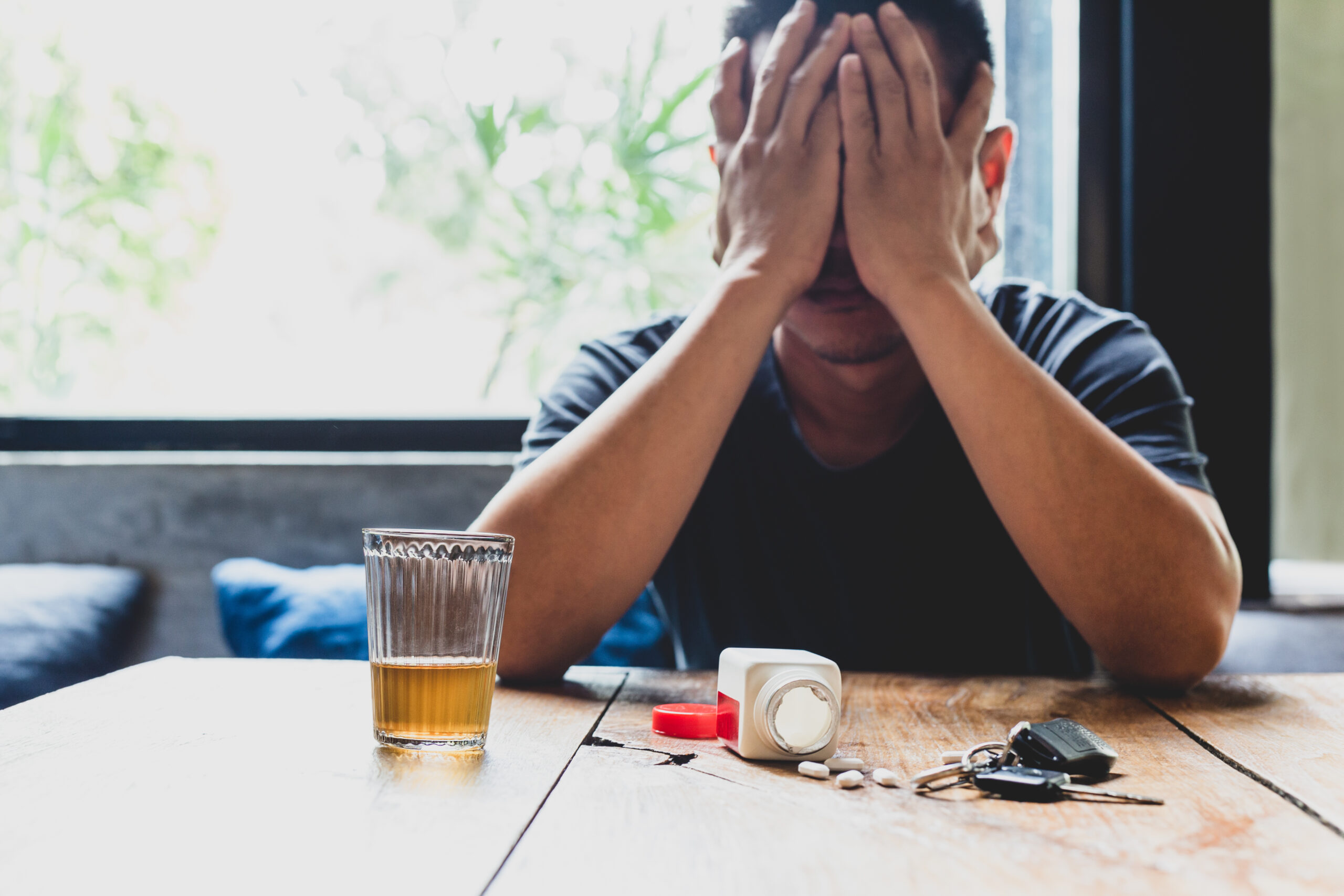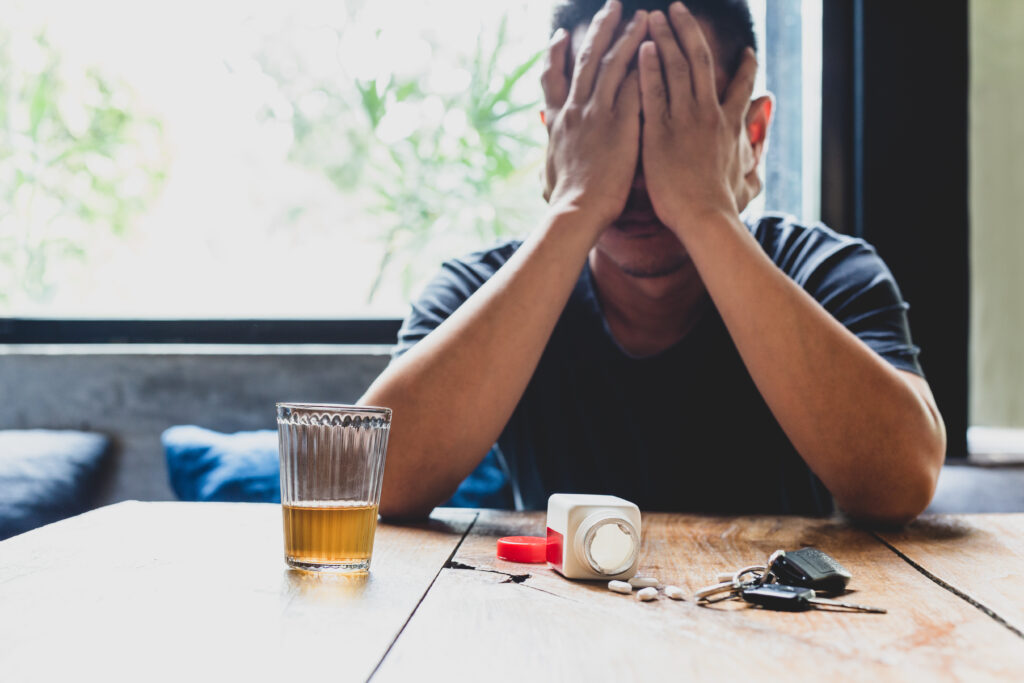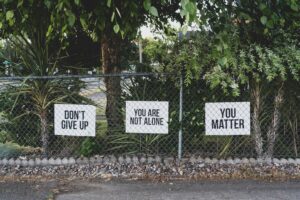Did you know that there are many stages that lead up to addiction? We all heard in school that all it takes is one time, and while that can be correct, it is often a fear tactic. In truth, addiction doesn’t happen overnight and it rarely happens if you take an opioid once. Most people first go through physiological dependence, and psychological dependence before they become a true addiction is formed.
What is Physiological Dependence?
Firstly, physiological dependence does not necessarily mean you or a loved one has a substance use disorder. The differences between the two can be hard to distinguish, but one does not mean the other.
A physiological dependence is a warning sign that you may develop a substance use disorder if you do not start to change your habits. During this stage, your body is dependent on the drug, meaning it believes that it needs it to survive, but the adverse side effects (withdrawal symptoms) are not as harsh as true substance use disorder.
Additionally, physiological dependencies are most commonly formed with prescription medication that is not abused by the patient. Many people with medical conditions such as diabetes, glaucoma, chronic pain, or high-blood pressure become dependent on their medication. This is expected, as their body does actually need specific medications to treat their condition. This does not mean the patient has a substance use disorder — it just means they need medication to have a higher quality of life.
How Does it Form?
Not unlike addiction, physiological dependency changes your brain chemistry. Tolerance does build up over time, which changes how the brain reacts to the presence of the drug. It may release fewer neurotransmitters, hormones, or chemicals until it detects the drug in your system.
It’s actually a lot like a caffeine headache. Your brain and body don’t like not having caffeine in them, so they turn up the pain. Once you have your morning coffee, however, the headache subsides. Physical dependency is exactly like that, as is addiction.
Signs to Watch Out For
Because physiological dependence is a warning sign, you’ll need to know how to spot it. For many, the withdrawal symptoms are the wakeup call they need to make changes. Therefore, if you wake up in the morning and are feeling symptoms of withdrawal, or they happen during the day (depending on when you last took your medication or substance of choice), then you’ll need to make a change.
Withdrawal can occur with substance use disorders too. It is possible that you’ve already moved past the dependence stage, which is why early detection of these symptoms is key. Beating a dependence is much easier than overcoming an addiction.
Examples of withdrawal symptoms include hand tremors, gastrointestinal issues, depression, and anxiety. Your options now involve continuing to use, talking with your doctor to change your medication, or choosing an addiction treatment program.
We at Direct2Recovery use a multifaceted customized approach. Every person who walks through our door is treated with respect and is given a treatment plan that fits their needs. We utilize telemedicine, counseling, and medication-assisted treatment with Suboxone to help you cope with withdrawal symptoms during your treatment. Give us a call today at 602-962-8562 or visit us online to learn more.
What is Psychological Dependence?
Psychological dependence is when the use of substance ties to a feeling or event, called triggers. It’s not quite the same as physiological dependence, because it requires a trigger for you to crave that substance.
For example, imagine your favorite fast food chain. If you saw an advertisement on TV for it, you’d want their food, right? That’s a psychological trigger. You see the food and you want to eat it.
Substances work the same way. Specific trauma, stressors, people, locations, and events can be triggers. If you see them, they amplify your desire to use. However, you can still choose to not take the substance while dealing with these triggers — with addiction, it’s almost impossible to not take the substance when in these situations.
What Is Addiction?
Addiction is a complex disease with both physical and mental aspects. It’s the response to substances like drugs or alcohol altering their brain chemistry. For some, addiction can happen without them becoming dependent upon a substance. Treatment professionals refer to this type of dependency as a process addiction, which includes non-drug triggers such as gambling, gaming, sex, etc.
Substance use disorder (the medical term for drug addiction) involves psychological aspects and changes to the body’s processes. Your brain will respond differently to regular stimuli due to its altered state.
It’s like this: do you drink coffee? You have your favorite brand and just the right amount of creamer and sugar in a piping hot mug. Imagine how that first cup makes you feel in the morning. Now imagine if the store was out of your favorite brand and you had to switch to your second favorite coffee by the same brand. It’s just not the same, is it?
Your preferred choice is what your brain is trained to respond to. It will release more endorphins when you drink that, then when you have your second favorite choice. Now, relating it back to substance use, your favorite choice is a substance, while the second choice is something that used to make you really happy, like your family, exercise, or music. Since your brain is trained to want the substance, you no longer feel the same level of excitement over those “second choices.”
It’s important to remember that you can recover from substance use disorder, whether you notice it during the dependency stage or when you’re already addicted. There are resources out there to help you.
Choose The Right Clinic To Help You
If you or a loved one need help, start with us at Direct2Recovery. As we stated earlier, we’re an outpatient Suboxone clinic that is dedicated to help as many patients as we can to overcome their addiction and begin to live life at its fullest once again.
We strive to make every patient that walks into our office feel comfortable and genuinely welcome. We listen instead of label; if you’re physiologically dependent or have a substance use disorder, we’ll work with you. Every single patient we approve gets a customized treatment plan that matches their lifestyle and their needs — we even offer telemedicine options.
Give us a call at 602-962-8562 or visit us online to learn more.





